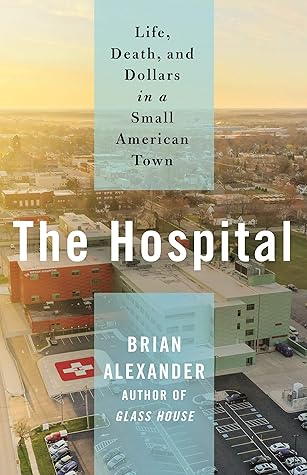More on this book
Community
Kindle Notes & Highlights
Read between
September 8 - September 24, 2021
Acton finally had enough and resigned. By the end of July, forty-nine health officials in twenty-three states had either resigned or been fired, often after threats, harassment, or having property vandalized.
By June, Watkins was receiving emails like “YOU ARE A FUCKING ASSHOLE, YOU SON OF A JACKASS!!!!!!!!!!” The mayor of Pioneer, Ed Kidston, seemed to think Covid-19 was an enemy coming over the hill to attack a fort. “Americans are not do-nothings!” he wrote to the Bryan Times. “We never sat silent and let the enemy creep in, regardless of the casualties.” It was the “regardless of the casualties” part that worried Watkins. When attending a meeting to discuss the cancellation of much of the county fair, the president of the Williams County fair board wore a “Don’t Tread on Me” baseball cap (the
...more
The answer to that racist question was no, just as it had been way back when Frederick Hoffman suggested that African Americans were less healthy because of personal moral failings, and just as it was in Bryan when people suggested the poor and the sick had only themselves to blame. African Americans were more likely to be poor, to live in crowded households, to be “essential workers” (grocery store clerks, truck drivers, delivery people, nursing assistants), to suffer from obesity or diabetes or high blood pressure, to have lousy health insurance or no insurance at all, to have crummy access
...more
While small community hospitals tried to stay afloat, big hospital systems had truckloads of money to ride out the crisis. The richest figured out how to take government money anyway. By the end of June, ProMedica had taken $240 million, though it sat atop a hoard of $2.2 billion in cash and investments. For the quarter ending June 30, the “nonprofit” made a 10.8 percent operating margin. UPMC, the University of Pittsburgh Medical Center organization—the “nonprofit” that built hospitals in Italy and started its own venture capital outfit—swept up about $1 billion in government payments and
...more
Consolidation within the medical equipment industry now seemed to have been a bad idea, too. For example, in 2012, Covidien—the Tyco spin-off that was purchased by Medtronic several years later—bought a maker of ventilators called Newport Medical Instruments. Regulators suspected Covidien bought Newport because Newport had designed a cheaper vent that threatened to compete with Covidien’s expensive one. Covidien, they thought, wanted to squash the cheaper design. Two years before the buyout, Newport had signed a deal with the federal government in which Newport would make thousands of vents at
...more


